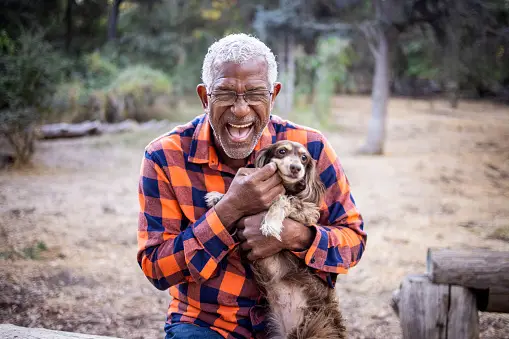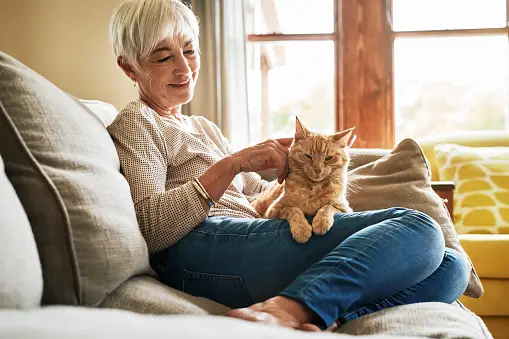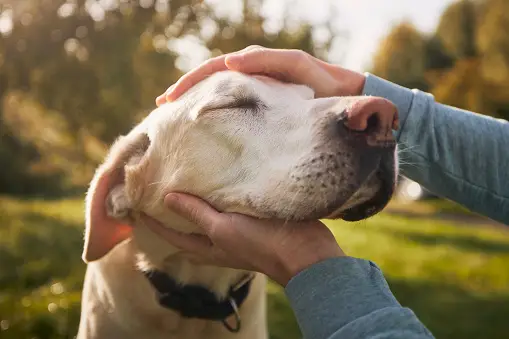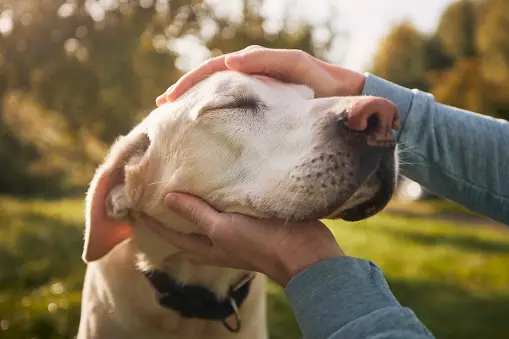The Transformative Impact of Animals and Pets on Senior Health Care

As the population ages, the importance of holistic health care for seniors becomes increasingly evident. Beyond medical interventions and traditional therapies, there is a growing recognition of the role animals and pets can play in enhancing the well-being of older adults. Animal companionship, joy, and sense of purpose can profoundly impact senior health care in various ways.
Companionship and Alleviating Loneliness
One of the most significant benefits of having a pet for seniors is the companionship they provide. As individuals age and face changes such as retirement, children moving out, or the loss of a spouse, feelings of loneliness and isolation can become more prevalent. Pets offer unconditional love and companionship, which can help alleviate these feelings. The presence of a pet can provide seniors with a sense of purpose and companionship, reducing the risk of depression and improving overall mental well-being.
Physical Health and Active Lifestyle
Pets, especially dogs, can encourage seniors to stay active. Regular walks with a dog provide exercise and fresh air, which are essential for maintaining physical health. The routine of caring for a pet, including feeding, grooming, and playing, can also contribute to a more active lifestyle. Studies have shown that pet owners are more likely to meet daily exercise requirements, leading to improved cardiovascular health and a reduced risk of obesity.
Mental Stimulation and Cognitive Function
Caring for a pet can provide mental stimulation for seniors, which is crucial for maintaining cognitive function. Remembering feeding schedules, training commands, and grooming routines can help seniors keep their minds sharp. Interacting with animals has also been shown to reduce stress and anxiety, which can positively impact cognitive health.

Emotional Support and Stress Relief
Pets have a unique ability to provide emotional support to their owners. They are non-judgmental and offer unconditional love, which can be especially beneficial for seniors who may be experiencing feelings of loneliness or isolation. The act of petting an animal has been shown to release oxytocin, a hormone that promotes bonding and reduces stress. This can help seniors feel calmer and more relaxed, leading to improved emotional well-being.
Social Interaction and Community Engagement
Owning a pet can also increase social interaction for seniors. Walking a dog or visiting a dog park can lead to conversations with other pet owners, creating opportunities for socialization and community engagement. Pets can act as social catalysts, helping seniors connect with others and reduce feelings of isolation.
Sense of Purpose and Routine
Caring for a pet gives seniors a sense of purpose and responsibility. Feeding, grooming, and exercising a pet can provide structure to the day, which is beneficial for seniors who may have lost some of their daily routines due to retirement or other life changes. This sense of purpose can improve mental well-being and overall quality of life.
Mood Enhancement and Mental Health
The presence of a pet can positively impact mood and mental health. Pets can provide comfort and companionship during difficult times, reducing feelings of anxiety and depression. Their playful antics and affectionate nature can bring joy and laughter into seniors’ lives, improving their overall mood and well-being.
Improved Heart Health
Studies have shown that owning a pet can have a positive impact on heart health. The presence of a pet, especially a dog, has been associated with lower blood pressure, reduced cholesterol levels, and decreased risk of heart disease. The daily routine of walking a dog or engaging in playtime can contribute to improved cardiovascular health, ultimately benefiting seniors’ overall well-being.
Enhanced Immune System
Interacting with animals can boost the immune system and help seniors stay healthier. Studies have found that pet owners, especially those who have regular contact with their pets, tend to have stronger immune systems and are less likely to develop allergies and respiratory infections. The presence of pets in the home can expose seniors to a wider range of microbes, which can help strengthen their immune response.
Increased Longevity
Owning a pet can have a positive effect on longevity among seniors. Studies have shown that pet owners, particularly dog owners, tend to live longer than those who do not have pets. Pets provide companionship, physical activity, and emotional support, which can all contribute to a higher quality of life and a longer lifespan for seniors.
Animals and pets offer a multitude of benefits for senior health care, including improved heart health, enhanced immune system, and increased longevity. By incorporating animals into senior care programs, we can promote a healthier and more fulfilling life for older adults.
Pet Therapy Programs

Pet therapy, also known as animal-assisted therapy, is a growing field that involves trained animals interacting with people to promote their emotional, social, and physical well-being. In hospice care, pet therapy programs can provide comfort, companionship, and a sense of normalcy to patients facing end-of-life issues. Here are some different pet therapy programs commonly used in hospice settings:
Dog Therapy
Dogs are the most common therapy animals used in hospice settings. They are known for their ability to comfort and companion patients. Trained therapy dogs visit hospice patients, offering them a sense of joy and relaxation. Dogs can also help reduce patients’ anxiety and depression, providing a welcome distraction from their illness.
Cat Therapy
Cats are another popular choice for pet therapy in hospice care. Their calming presence and soothing purrs can be comforting to patients. Cats are known for their ability to sense when someone is in distress, and they often provide gentle companionship to patients in hospice.
Equine Therapy
Horses are also used in some hospice settings for animal-assisted therapy. Equine therapy involves interactions between patients and horses, such as grooming, feeding, and walking. Horses’ gentle nature can help patients feel at ease and provide a unique form of therapy.
Bird Therapy
Some hospice programs incorporate birds, such as parrots or cockatiels, into their therapy programs. The presence of birds can provide a sense of tranquility and can be a source of fascination and joy for patients.
Rabbit Therapy
Rabbits are known for their gentle and docile nature, making them well-suited for therapy programs. Interacting with rabbits can help patients feel calm and relaxed.
Animal-Assisted Activities
In addition to formal therapy programs, some hospices offer animal-assisted activities, where trained animals visit patients to provide comfort and companionship. These activities can include petting, playing, or simply spending time with the animal.
Therapeutic Riding Programs
Some hospices offer therapeutic riding programs, where patients can engage in horseback riding as a form of therapy. Riding can provide physical benefits, such as improved balance and coordination, as well as emotional benefits, such as increased confidence and self-esteem.
A Great Option
This is a great idea for elderly patients who love animals and need a dependable companion. Pet therapy programs play a vital role in hospice care, offering a source of comfort, companionship, and emotional support to patients facing end-of-life issues. The presence of therapy animals, such as dogs, cats, and horses, can provide patients with a sense of normalcy and joy during a challenging time. These programs benefit patients and provide a rewarding experience for the animals involved.
The variety of therapy animals used in hospice care allows for a personalized approach, catering to patients’ individual needs and preferences. Whether it’s a cat’s gentle purring, a dog’s wagging tail, or a horse’s calming presence, therapy animals offer a unique form of therapy that can help improve hospice patients’ quality of life.
Overall, pet therapy programs in hospice care highlight the important role that animals can play in providing comfort and support to those in need. By incorporating these programs into hospice care, providers can enhance the well-being of patients and create meaningful experiences that offer solace during a challenging time.







